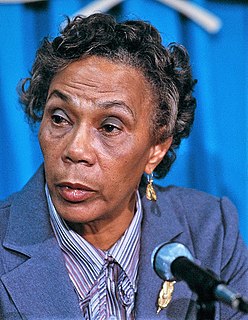A Quote by Pope Gregory I
Whatsoever one would understand what he hears must hasten to put into practice what he has heard.
Quote Topics
Related Quotes
The words are very distinctly formed; but by the bodily ear they are not heard. They are, however, much more clearly understood than they would be if they were heard by the ear. It is impossible not to understand them, whatever resistance we may offer... There is no escape, for in spite of ourselves we must listen...
Never underestimate your players; they can do it with enough game-like practice. Coaches must put more emphasis in practice and in life on making student-athletes aware of what they could or can do, rather than what they couldn't or presently can't do. The focus must be on solutions, not problems; what is wanted, not what is feared.
I don’t understand why we must do things in this world, why we must have friends and aspirations, hopes and dreams. Wouldn’t it be better to retreat to a faraway corner of the world, where all its noise and complications would be heard no more? Then we could renounce culture and ambitions; we would lose everything and gain nothing; for what is there to be gained from this world?
If you understand real practice, then archery or other activities can be zen. If you don't understand how to practice archery in its true sense, then even though you practice very hard, what you acquire is just technique. It won't help you through and through. Perhaps you can hit the mark without trying, but without a bow and arrow you cannot do anything. If you understand the point of practice, then even without a bow and arrow the archery will help you. How you get that kind of power or ability is only through right practice.
































